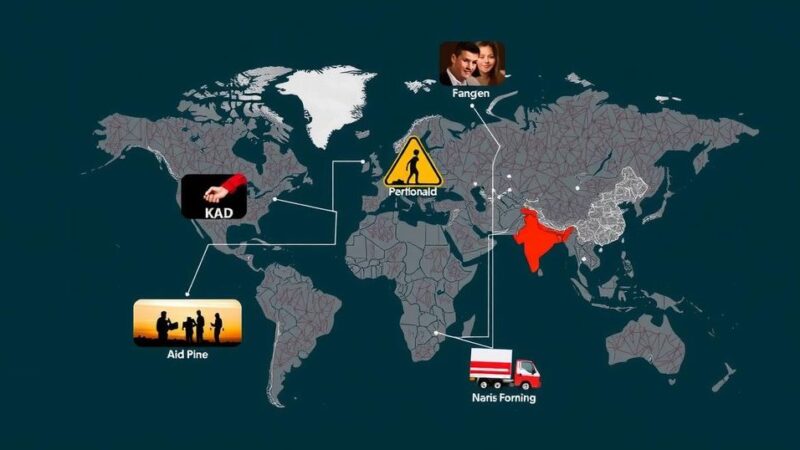Israel and Iran have escalated military tensions, delivering significant developments ahead of the U.S. elections. Israel’s targeted operations against Iranian interests are a direct response to nuclear threats, while Iran’s military activities signal retaliation. These dynamics may have broad implications for U.S. foreign policy, particularly as candidates express their views on handling such international crises.
In an unprecedented turn of events leading to the U.S. elections, both Israel and Iran have emerged as pivotal players in delivering startling developments often referred to as the ‘October surprise.’ In the context of heightened geopolitical tensions, Israel has intensified its military operations against Iranian interests in the region, specifically targeting Iranian officials and militias compounded by aggressive aerial assaults. This assertive posture reflects not only Israel’s strategic interests but also exemplifies its response to the perceived threats from Iran’s advancing nuclear capabilities, coupled with international scrutiny regarding Tehran’s actions. Consequently, Iran’s retaliatory stance has been marked by increased military activities as well, which further escalates the situation. Such developments have the potential to impact U.S. foreign policy, particularly given the impending elections, where candidates’ stances on these international matters may influence voter sentiment. The dynamics between these two nations resonate significantly within the framework of U.S.-Middle Eastern relations, positioning the election outcome as a potential determinant for future interactions between the involved parties. The reactions to these events are varied among political candidates, with each vying for public support by addressing how these international incidents might shape America’s role on the world stage. Furthermore, observers note the possibility of increased conflict tensions potentially deterring Republican and Democratic candidates alike from pursuing hawkish foreign policies, as they balance electoral considerations with international diplomacy.
The significance of the developments between Israel and Iran cannot be understated, particularly in relation to the U.S. elections. Israel perceives Iran as a formidable adversary, particularly due to its nuclear ambitions and support for anti-Israel factions within the region. Historically, the relationship between the U.S., Israel, and Iran has been fraught with tension, especially after the U.S. withdrawal from the Iran nuclear deal in 2018. The current scenario exemplifies the intricate web of Middle Eastern politics, where local conflicts can swiftly escalate into broader geopolitical confrontations, drawing significant U.S. interest, especially during an election cycle.
In conclusion, the military actions undertaken by Israel against Iranian elements, alongside Iran’s consequent reactions, comprise a complex scenario that has emerged just ahead of the U.S. elections. These developments could significantly influence the electoral landscape, as candidates may need to navigate the complicated implications of foreign policy in the context of the election. As both nations position themselves in this geopolitical chess game, the ramifications for U.S. policy and international relations remain profound and warrant close scrutiny.
Original Source: www.ft.com






